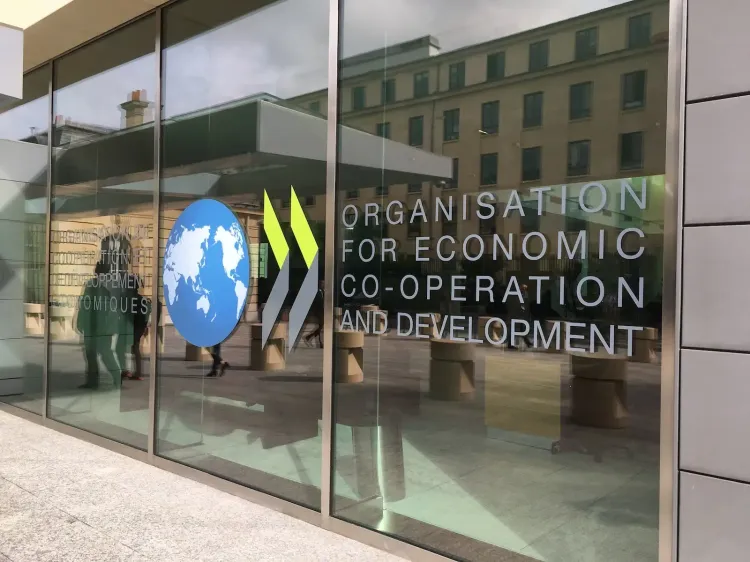OECD Significantly Lowers South Korea's 2025 Growth Forecast to 1.5%

Synopsis
Key Takeaways
- OECD reduces South Korea's growth forecast to 1.5%.
- Decline by 0.6 percentage points from December estimate.
- Attribution to trade barriers and geopolitical uncertainties.
- 2026 growth projected at 2.2%.
- Emphasis on fiscal discipline and monetary policy adjustments.
Seoul, March 17 (NationPress) The Organisation for Economic Cooperation and Development (OECD) has significantly reduced its growth estimate for the South Korean economy this year to 1.5 percent, as reported by the finance ministry on Monday.
This updated projection represents a 0.6 percentage-point decline from the OECD's earlier forecast in December, according to the ministry's statement referencing the latest report by the organization.
The OECD indicated that this downward adjustment is due to rising trade barriers and increased geopolitical and policy uncertainties, although no further specifics were provided.
The current estimate aligns with the forecast from the Bank of Korea (BOK) but is more pessimistic compared to predictions by other significant institutions, such as the finance ministry's earlier growth expectation of 1.8 percent and the Korea Development Institute's 1.6 percent growth estimate.
The report mentioned, 'Growth in both (South) Korea and Australia is anticipated to persist but will be less robust than previously expected.'
For 2026, the OECD anticipates the South Korean economy will expand by 2.2 percent year-on-year, reflecting a 0.1 percentage point increase from its December forecast.
The organization also highlighted 'further fragmentation' within the economy and unexpected inflation as significant downside risks to the global economic landscape.
The OECD proposed several policy suggestions, emphasizing that the central bank should tackle high uncertainty and potential increases in trade costs when making monetary policy decisions.
Currently, South Korea's benchmark interest rate is at 2.75 percent, following a recent quarter-percentage-point reduction by the BOK in February.
The report further stressed the necessity of maintaining fiscal discipline to ensure the government is equipped to respond effectively to future economic challenges.
In other news, South Korean stocks saw a significant uptick on Monday, driven by gains in leading company Samsung Electronics and other technology shares, in line with their Wall Street counterparts, despite ongoing concerns regarding US President Donald Trump's extensive tariff initiatives. The local currency appreciated against the US dollar.
The benchmark Korea Composite Stock Price Index (KOSPI) gained 44.33 points, or 1.73 percent, closing at 2,610.69, marking an end to a two-day declining trend.









